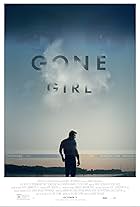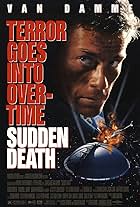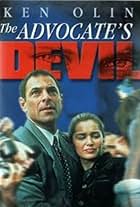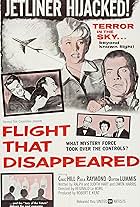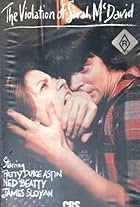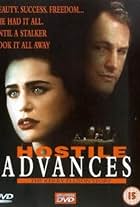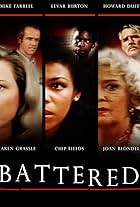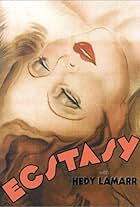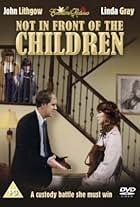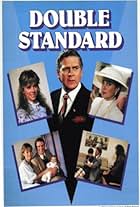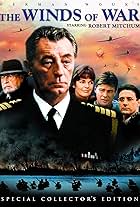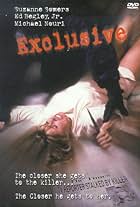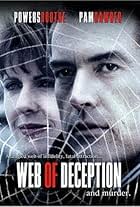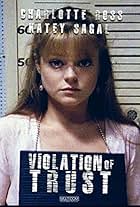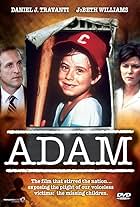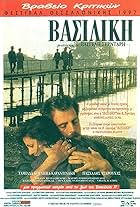
costaspap
Joined Dec 2008
Welcome to the new profile
We're still working on updating some profile features. To see the badges, ratings breakdowns, and polls for this profile, please go to the previous version.
Ratings685
costaspap's rating
Reviews7
costaspap's rating
Understandably, this low-budget TV movie is compared unfavorably to the acclaimed film "Monster", which, in a sense, romanticizes crime and hence appears more attractive to the public.
On the other hand, "Overkill" is closer to the true story. The one thing that is missing, though, is the part concerning the trial of Aileen Wuornos. There were some really strong moments there, and the courtroom scenes would have added to the authenticity of the film.
In addition, there is some very good acting in this film, not too inferior to the one that won a cinematic Oscar!
In my opinion, this TV movie is unjustly underrated...
On the other hand, "Overkill" is closer to the true story. The one thing that is missing, though, is the part concerning the trial of Aileen Wuornos. There were some really strong moments there, and the courtroom scenes would have added to the authenticity of the film.
In addition, there is some very good acting in this film, not too inferior to the one that won a cinematic Oscar!
In my opinion, this TV movie is unjustly underrated...
In our review for Robert Guédiguian's wonderful film "The Snows of Kilimanjaro" (http://www.imdb.com/title/tt1852006/reviews-6) we raised the question whether Art should be an imitation of life or whether it should be the other way around. The advocates of realism will make the first choice since, in their opinion, life is full of ugliness that Art must faithfully portray. As is often the case, the artist does not even distinguish between realism and pessimism. In the case of cinema, in particular, the audience must leave the theater full of dark thoughts and feelings of vanity; happy ending is a taboo and a positive message should be hard to find. Idealism, on the other hand, reserves a more noble and ambitious role for Art by creating high standards of human character, thus offering psychological, ideological and aesthetic motivation for man to overcome the inherent weaknesses of his nature and morally elevate himself by striving to reach these standards.
Guédiguian's film masterfully balances between these two opposite philosophical trends. One could hardly say anything less about Jacques Audiard's "Dheepan" (Palme d'Or at the 2015 Cannes Film Festival). In the first place, the subject – immigration to Europe from war-torn places of the Third World – is so timely that the film almost acquires the character of a documentary. The audience, however, progressively witnesses a marvelous transformation from the harsh reality of human survival to the final triumph of human moral exaltation!
Here is the beginning of the story:
"Dheepan" is a freedom fighter of the "Tamil Tigers" in the Sri Lankan Civil War. The war approaches its end and defeat of the revolutionaries is imminent. Dheepan, whose entire family was lost in the war, decides to flee the country together with a woman and a little girl – two persons previously unknown to him as well as to each other – in the hope that, by pretending that they are a family, it would be easier for them to claim asylum somewhere in Europe. Arriving in Paris, the "family" seeks temporary housing while Dheepan tries to earn some money by selling little things under the nose of the Police. Finally, he finds a permanent job as a caretaker in a building block somewhere in the suburbs. Although the place is miserable and, moreover, is a den of unlawful activities, Dheepan works hard to build a new life for him and his new family...
The craftsmanship of the narrative lies in the wonderful balance between the hard realism of the subject and the cinematic poetry that permeates the film from beginning to end. This narrative carefully and skillfully avoids the traps of over-sentimentalism and political didacticism, as well as the temptation of sanctification or demonization of the various characters, as such oversimplifications would undoubtedly undermine the artistic result. The main heroes, in particular, are not a priori "good". They discover the good parts of their own nature as the story progresses, thus developing as human beings in the process.
It is precisely this miracle of character revelation and moral elevation in front of the viewer's eyes that makes cinema such a wonderful art, after all. And, even if it seems too idealistic to be true, this miracle is far from representing a utopia!
Guédiguian's film masterfully balances between these two opposite philosophical trends. One could hardly say anything less about Jacques Audiard's "Dheepan" (Palme d'Or at the 2015 Cannes Film Festival). In the first place, the subject – immigration to Europe from war-torn places of the Third World – is so timely that the film almost acquires the character of a documentary. The audience, however, progressively witnesses a marvelous transformation from the harsh reality of human survival to the final triumph of human moral exaltation!
Here is the beginning of the story:
"Dheepan" is a freedom fighter of the "Tamil Tigers" in the Sri Lankan Civil War. The war approaches its end and defeat of the revolutionaries is imminent. Dheepan, whose entire family was lost in the war, decides to flee the country together with a woman and a little girl – two persons previously unknown to him as well as to each other – in the hope that, by pretending that they are a family, it would be easier for them to claim asylum somewhere in Europe. Arriving in Paris, the "family" seeks temporary housing while Dheepan tries to earn some money by selling little things under the nose of the Police. Finally, he finds a permanent job as a caretaker in a building block somewhere in the suburbs. Although the place is miserable and, moreover, is a den of unlawful activities, Dheepan works hard to build a new life for him and his new family...
The craftsmanship of the narrative lies in the wonderful balance between the hard realism of the subject and the cinematic poetry that permeates the film from beginning to end. This narrative carefully and skillfully avoids the traps of over-sentimentalism and political didacticism, as well as the temptation of sanctification or demonization of the various characters, as such oversimplifications would undoubtedly undermine the artistic result. The main heroes, in particular, are not a priori "good". They discover the good parts of their own nature as the story progresses, thus developing as human beings in the process.
It is precisely this miracle of character revelation and moral elevation in front of the viewer's eyes that makes cinema such a wonderful art, after all. And, even if it seems too idealistic to be true, this miracle is far from representing a utopia!
The transfer of a classic novel to the big screen is no easy task. In addition to merely representing facts, the director must guide the actors to express the inner dimensions of the drama. More so when this is the work of a great anatomist of the human soul and character!
Leo Tolstoy's "Anna Karenina" experienced several film and television adaptations (notable being those of 1935 and 1948). Recently, another cinematic attempt to approach the classic masterpiece made its appearance in theaters ("Anna Karenina", UK 2012), directed by Joe Wright ("Atonement", "Pride & Prejudice").
Let us recall the story: Anna Karenina is a Russian aristocrat of the late 19th century, married to Alexei Karenin, a mild-tempered government official considered a "saint" in Russia. Despite her affluent and honorable life, Anna is willing to sacrifice her status in society –and even her own son- for a passionate affair with a young cavalry officer, causing a scandal in the conservative Russian aristocracy...
The film inevitably evokes comparison with Laurence Olivier's classic, "Henry V" (1944). Both movies begin as filmed performances of a theatrical play. The basic difference is that Olivier's film masterfully escapes in the real world, eventually acquiring a purely cinematic form, which Wright's claustrophobic approach stubbornly refuses to do (with the exception of a few scenes), exhausting its material (not always in the most elegant way) within the space of an almost metaphysical theater.
The film suffers from a rather loose editing that makes it seem somewhat longer than it should be. The sets and costumes, though, are impressive, as is the wonderful music scoring by Dario Marianelli. With regard to casting, the choice of Aaron Taylor-Johnson as Count Vronsky was an unfortunate one. As another reviewer aptly remarked, he might have been a proper choice in a story where the heroine seduces a schoolboy, but he certainly isn't quite convincing as a fatal lover who could make an aristocrat's wife become infatuated to the point of absolute self- destruction!
Keira Knightley also misses the target. Instead of the refined, mature, morally conscious and deeply human and down-to-earth lady of high society, she delivers a shallow, self-important and emotionally immature young woman who can hardly win sympathies as a heroine of a tragedy. In my opinion, Tilda Swinton would probably have been a better choice! On the contrary, Jude Law gives an excellent performance as an apparently colorless, though deeply tragic, Alexei Karenin.
In conclusion, one should certainly not expect to witness a deep penetration into the intellectually and emotionally complex world of Tolstoy. If, on the other hand, one is simply looking for a two-hour, good-quality entertainment, then this is definitely a film one wouldn't want to miss!
Leo Tolstoy's "Anna Karenina" experienced several film and television adaptations (notable being those of 1935 and 1948). Recently, another cinematic attempt to approach the classic masterpiece made its appearance in theaters ("Anna Karenina", UK 2012), directed by Joe Wright ("Atonement", "Pride & Prejudice").
Let us recall the story: Anna Karenina is a Russian aristocrat of the late 19th century, married to Alexei Karenin, a mild-tempered government official considered a "saint" in Russia. Despite her affluent and honorable life, Anna is willing to sacrifice her status in society –and even her own son- for a passionate affair with a young cavalry officer, causing a scandal in the conservative Russian aristocracy...
The film inevitably evokes comparison with Laurence Olivier's classic, "Henry V" (1944). Both movies begin as filmed performances of a theatrical play. The basic difference is that Olivier's film masterfully escapes in the real world, eventually acquiring a purely cinematic form, which Wright's claustrophobic approach stubbornly refuses to do (with the exception of a few scenes), exhausting its material (not always in the most elegant way) within the space of an almost metaphysical theater.
The film suffers from a rather loose editing that makes it seem somewhat longer than it should be. The sets and costumes, though, are impressive, as is the wonderful music scoring by Dario Marianelli. With regard to casting, the choice of Aaron Taylor-Johnson as Count Vronsky was an unfortunate one. As another reviewer aptly remarked, he might have been a proper choice in a story where the heroine seduces a schoolboy, but he certainly isn't quite convincing as a fatal lover who could make an aristocrat's wife become infatuated to the point of absolute self- destruction!
Keira Knightley also misses the target. Instead of the refined, mature, morally conscious and deeply human and down-to-earth lady of high society, she delivers a shallow, self-important and emotionally immature young woman who can hardly win sympathies as a heroine of a tragedy. In my opinion, Tilda Swinton would probably have been a better choice! On the contrary, Jude Law gives an excellent performance as an apparently colorless, though deeply tragic, Alexei Karenin.
In conclusion, one should certainly not expect to witness a deep penetration into the intellectually and emotionally complex world of Tolstoy. If, on the other hand, one is simply looking for a two-hour, good-quality entertainment, then this is definitely a film one wouldn't want to miss!


